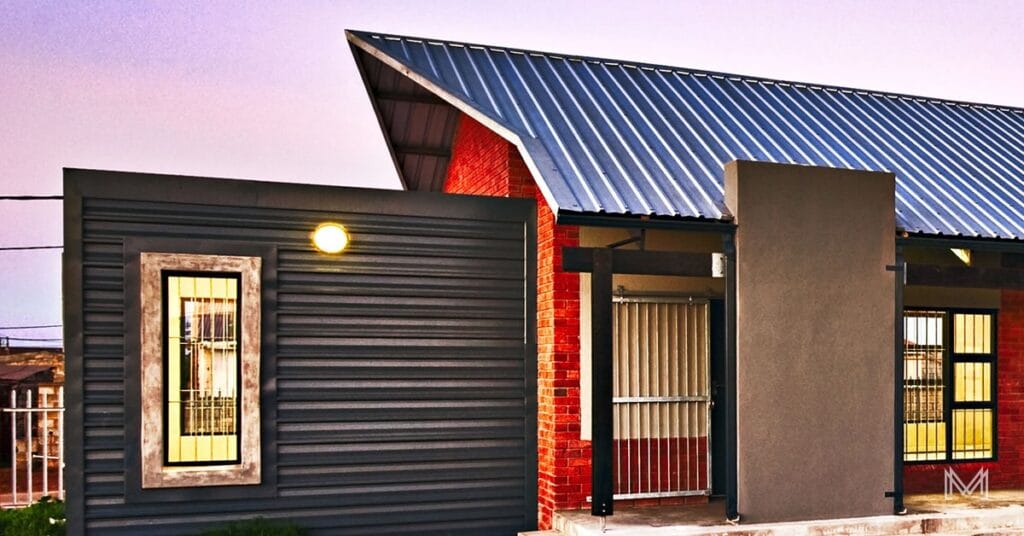From Blueprint to Success: A Step-by-Step Guide to Starting Your Own Roof Sheet Business in South Africa
The construction sector in South Africa is experiencing tremendous growth, resulting in an increase in the need for key building materials, particularly roofing services. People who want to start their own company will find that starting a roof sheet business in South Africa is a profitable prospect. On the other hand, in order to successfully navigate the complexity of this business, one must have a well-defined strategy and a profound awareness of the market.
The purpose of this post is to act as a complete guide that will walk you through the necessary stages to create a successful roof sheet company in South Africa. We are going to cover all there is to know about this intriguing enterprise, from doing market research to developing practical plans.
1. Market Research: Laying the Foundation
Before embarking on any entrepreneurial journey, thorough market research is crucial. Your business strategy will build upon this foundation. In the context of a roof sheet business, here’s what you need to consider:
- Demand Analysis: South Africa’s construction sector is dynamic, with varying demands across different regions. Identify the specific areas with the highest demand for roof sheets, taking into account factors such as housing, commercial developments, and infrastructure projects.
- Competition: Analyse your potential competitors. What types of roof sheets are they offering? What are their pricing strategies and marketing approaches? This analysis will help you differentiate your business and position yourself strategically.
- Target Audience: Who are your ideal customers? Will you cater to individual homeowners, construction companies, or both? Understanding your target audience will guide your product offerings and marketing efforts.
- Regulations: South Africa has specific regulations governing building materials, including roofing. Familiarise yourself with these regulations to ensure your products comply with safety and quality standards.

2. Business Plan: The Roadmap to Success Roof Sheet Business
A well-structured business plan acts as a roadmap for your business, outlining your goals, strategies, and financial projections. Here are the essential components of a solid business plan:
- Executive Summary: A concise overview of your business, its goals, and key aspects of your plan.
- Company Description: Detail your business structure, its mission, and its unique selling proposition (USP). Highlight what sets your business apart from competitors.
- Market Analysis: Summarise your market research findings, including demand, competition, and target audience.
- Products and Services: Clearly outline the types of roof sheets you’ll offer, specifying their materials, sizes, and any unique features.
- Marketing Plan: Define your target market and your marketing strategies to reach them. Consider online and offline approaches, advertising channels, and promotional campaigns.
- Operations Plan: Describe how your business will operate, including your manufacturing process, supply chain management, inventory control, and customer service.
- Financial Projections: Develop detailed financial projections, including start-up costs, operating expenses, revenue estimates, and profit margins. This section is essential for securing funding.
- Management Team: Highlight your management team’s experience and expertise. This demonstrates your ability to lead the business effectively.
3. Legal and Regulatory Compliance: Navigating the Framework
Starting a roof sheet business in South Africa necessitates compliance with specific legal and regulatory requirements. Here are the key steps to ensure smooth operation:
- Business Registration: Register your business with the Companies and Intellectual Property Commission (CIPC). Choose the appropriate business structure (sole proprietorship, partnership, or company) based on your needs.
- Tax Registration: Obtain a tax clearance certificate from the South African Revenue Service (SARS) to operate legally and fulfil your tax obligations.
- Permits and Licenses: Secure the necessary permits and licenses from local authorities to operate a manufacturing facility and distribute your products. These may vary depending on the specific location.
- Environmental Compliance: Ensure your manufacturing processes comply with environmental regulations to minimise any potential impact on the environment.
4. Setting Up Your Manufacturing Facility: Building the Foundation
Establishing a robust manufacturing facility is crucial for producing high-quality roof sheets efficiently. Here are the key aspects to consider:
- Location: Choose a location with excellent access to infrastructure (transportation, utilities, and skilled labour), proximity to raw material suppliers, and sufficient space for your manufacturing process.
- Equipment and Machinery: Invest in high-quality equipment and machinery that can handle the production of roof sheets efficiently and to the required specifications. This may include sheet metal rollers, cutting machines, bending machines, and welding equipment.
- Raw Materials: Establish reliable sources for your raw materials, such as steel coils, coatings, and packaging materials. Negotiate favourable pricing and ensure consistent supply.
- Quality Control: Implement strict quality control measures throughout the manufacturing process to ensure that all your products meet industry standards. This includes regular inspections and testing.
- Safety Standards: Prioritise safety in your manufacturing facility by complying with all relevant safety regulations and providing proper training to your staff.
5. Hiring the Right Team: Building a Skilled Workforce
The success of your roof sheet business hinges on having a skilled and dedicated workforce. Here’s a guide to hiring the right team:
- Production Staff: Recruit skilled workers with experience in sheet metal fabrication, welding, and operating the required machinery.
- Quality Control Inspectors: Employ individuals with a keen eye for detail to ensure that all products meet quality standards.
- Sales and Marketing Team: Hire experienced professionals who can market your products effectively and build strong relationships with customers.
- Administrative Staff: Recruit individuals skilled in managing office operations, accounting, and customer service.

6. Marketing Your Products: Reaching Your Target Audience
A well-executed marketing strategy is essential for gaining traction in the competitive roofing market. Here are some key strategies to consider:
- Online Marketing: Establish a strong online presence through a website and social media platforms. Showcase your products, highlight your USP, and engage with potential customers. Use targeted advertising campaigns to reach your ideal audience.
- Offline Marketing: Explore traditional marketing methods like print advertising in relevant publications, participating in industry events and trade shows, and distributing brochures and flyers.
- Strategic Partnerships: Collaborate with construction companies, architects, and building material suppliers to reach a wider customer base.
- Provide excellent customer service to build strong relationships and encourage repeat business. Address customer inquiries promptly and resolve any issues efficiently.
7. Pricing Strategies: Finding the Sweet Spot
Determining the right pricing strategy is critical for your business’s profitability. Consider the following factors:
- Production Cost: Calculate your production cost, including raw materials, labour, overhead expenses, and any other associated costs.
- Market Prices: Research the prevailing prices for similar roof sheets in the market. Consider the competitive landscape and the quality of your products.
- Value-Based Pricing: If your roof sheets offer unique features or benefits, you can justify a premium price. Highlight the value you bring to customers.
- To attract new customers and incentivize repeat business, strategically offer discounts and promotions.
8. Financial Management: Keeping Your Business on Track
Maintaining sound financial management is critical for your roofing business’s long-term sustainability. Here’s a comprehensive approach:
- Accurate Accounting: Maintain accurate financial records and track your income, expenses, and inventory levels. Use accounting software to streamline your financial management.
- Cash Flow Management: Monitor your cash flow closely to ensure that you have sufficient funds to cover operating expenses and invest in growth.
- To ensure long-term profitability, strive for healthy profit margins. Examine your costs and pricing strategies to maximise margins.
- Financial Reporting: Regularly review your financial statements to assess your business’s performance and identify areas for improvement.
9. Innovation and Growth: Staying Ahead of the Curve
The roofing industry is constantly evolving. To maintain a competitive edge, focus on innovation and growth.
- New Product Development: Continuously research and develop new types of roof sheets that meet changing market demands. Consider eco-friendly materials and innovative designs.
- Technology Adoption: Embrace new technologies to optimise your manufacturing process and enhance efficiency. Consider using automation and digital tools.
- Customer Feedback: Actively seek feedback from customers to understand their needs and preferences. Use this feedback to improve your products and services.
10. Challenges and Opportunities: Navigating the Landscape
Starting a roof sheet business in South Africa presents both challenges and opportunities. Be prepared for:
- Competition: The roofing market is competitive, with established players and new entrants. Differentiate your business by offering quality products, excellent customer service, and unique value propositions.
- Economic Fluctuations: The construction industry is sensitive to economic conditions. Be prepared for potential fluctuations in demand and adjust your operations accordingly.
- Raw Material Costs: The cost of raw materials, particularly steel, can vary. Negotiate favourable supply agreements and consider hedging strategies to mitigate risk.
- Sustainability: Environmental awareness is increasing. It is important to provide eco-friendly and sustainable roofing solutions to attract customers who are environmentally conscious.
The Future of Roofing: Roof Sheet Business
The roofing industry is constantly evolving, driven by technological advancements, changing consumer preferences, and increasing awareness of sustainability. Here are some key trends to watch:
- Sustainable Roofing: The demand for eco-friendly roofing solutions is on the rise, with consumers seeking materials that are energy-efficient, recyclable, and have a low environmental impact.
- Advanced Materials: Innovative materials such as composite roofing, metal tiles, and solar shingles are gaining popularity. These offer enhanced durability, aesthetics, and energy efficiency.
- Smart Roofing: Technology integration is transforming roofing. Smart roofing systems can monitor weather conditions, detect leaks, and provide real-time data for improved maintenance and energy management.
Conclusion: Roof Sheet Business
Starting a roofing sheet company in South Africa is a challenging yet lucrative endeavour. With careful preparation, an awareness of the dynamics of the market, and the ability to adjust to ever-changing trends, it is possible to develop a company that is both profitable and sustainable.
Never forget that in order to achieve success, you need to be dedicated, persistent, and committed to quality. Building a successful roof sheet company that contributes to South Africa’s building scene requires you to seize opportunities, overcome obstacles, and develop a successful business.

Frequently Asked Questions: About Starting a Roof Sheet Business:
What are the main costs of starting a South African business that sells roof sheets?
Starting a roof sheet business in South Africa typically requires a substantial investment, ranging from ZAR 1,000,000 to ZAR 10,000,000 or more. This investment covers important costs like buying or renting manufacturing equipment, making sure you have a steady supply of raw materials, setting up your facility, following all laws and rules, and creating your brand and marketing plan.
Which types of roof sheets are most common in South Africa?
IBR (Industrial Building Roofing) sheets, Colorbond steel sheets, Chromadek sheets, and metal sheets are the most common types of roof sheets used in South Africa. A lot of homes and businesses use corrugated iron sheets because they are cheap and durable. It’s best to use IBR sheets for big jobs because they are strong. Colorbond sheets come in many colours and styles, which make them look better. Chromadek sheets stop rusting and last a long time. Lastly, people use metal sheets for roofs and coverings due to their light weight and resistance to rust.
How hard is it for new companies to get into the South African roof sheet market?
It’s not straightforward for new companies to get into the South African roof sheet business. There are already a lot of established players in the market with well-known brands and established marketing networks. Keeping prices low enough to compete while still making money can be hard. The price of raw materials, especially steel, can change, affecting production costs. Lastly, following strict rules and safety standards is necessary to stay legal, but it makes running the business more difficult.
What distinguishes my roofing sheet business from others in the same field?
If you want to stand out, focus on strategies that set you apart from other people in the roofing sheet market. Offer one-of-a-kind items made from eco-friendly materials, materials that last longer, or materials that are resistant to fire. Provide tailored solutions that meet the needs of each customer and job. To build company trust, prioritise customer service, rapid delivery, and assistance after the sale. Offer reasonable prices, and stay profitable by running your business efficiently and keeping costs low. Lastly, target specific customer groups with your marketing by sending them tailored messages and conducting focused deals.
Where can I find more information and tools for starting a business in South Africa that sells roof sheets?
Check out the South African National Standards (SANS), the Department of Trade and Industry (dti), the South African Revenue Service (SARS), and the Construction Industry Development Board (CIDB) to learn more about how to start a roof sheet business in South Africa. Joining industry groups allows you to make connections, learn more about the business, and stay up-to-date on market trends.

